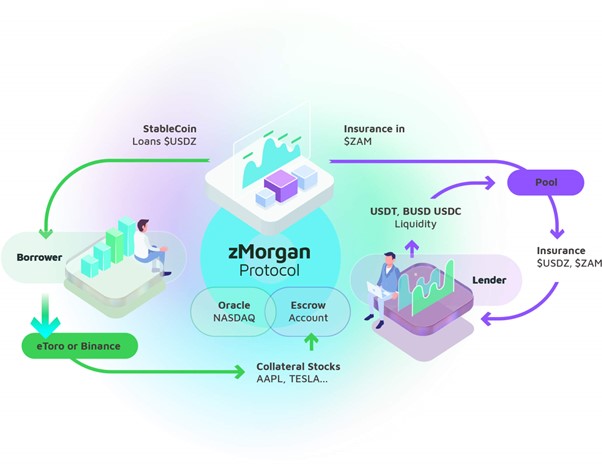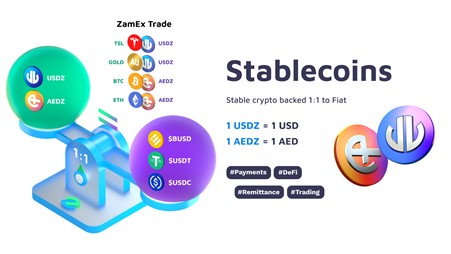Reason to trust

How Our News is Made
Strict editorial policy that focuses on accuracy, relevance, and impartiality
Ad discliamer
Morbi pretium leo et nisl aliquam mollis. Quisque arcu lorem, ultricies quis pellentesque nec, ullamcorper eu odio.
The capitalization of the cryptocurrency market has for the first time surpassed the $2 trillion mark. This reflects the rapid development of the sector and the inflow of new capital into digital assets. Nevertheless, the crypto industry market cap remains several times smaller than the capitalization of the gold market ($10.6 trillion) or the market for public shares ($100 trillion). Even more, capital is locked in productive assets in the accounts of companies and corporations, in the form of securities, bills of exchange, futures and options, which have been inactive for years, bringing modest dividends to their owners. If even a small portion of this capital moves to the decentralized finance sector, the cryptocurrency market capitalization will increase by billions of dollars. Zam.io’s solutions are designed to unite centralized and decentralized finance by duplicating equity capital on the blockchain. How it works is discussed below.
Stock-backed stablecoins? Already a reality!
The stock market had long been closed to small and medium-sized investors. The rules and procedures were established by large corporations, pouring billions of dollars into company securities. However, the emergence of blockchain technologies and the development of the DeFi sector have created a new class of investors who can freely invest their capital in blockchain projects.
In general, the rapid growth in the value of crypto assets has set in motion the inflow of stock-market capital into the cryptocurrency sector. However, this transferred capital remains relatively small in comparison to the total stock market capitalization.
“We have been observing the gradual transfer of investment companies’ capital into the cryptocurrency sector. While it represents a small percentage, it will increase every year as the market for digital assets grows and earns acceptance around the world. We have developed special blockchain protocols that allow the automatic duplication of equity capital in DeFi,” says Yuri Gusev, founder of Zam.io.
Thanks to the zMorgan service, users can transfer part of their capital, locked in company shares, to cryptocurrencies. This is truly a unique instrument that can significantly transform the stock market.
“Imagine you own $10,000 worth of Apple or Tesla shares. You want to try out cryptocurrency investing, but you don’t have the money to invest at your disposal and you don’t want to sell your securities. In this case, you can use the zMorgan protocol, which is capable of issuing a stablecoin loan worth up to 90% of the collateral amount secured by your Apple shares. You can then use the received stablecoins to buy other cryptocurrencies or invest in DeFi,” explains Yuri Gusev.
This solution allows you to quickly transfer stock market capital into the crypto sector and vice versa. It also solves several problems related to transparency and the provision of stablecoins backed by real assets.
“Those who follow the stablecoin market will probably remember the litigation between Tether and the New York prosecutor’s office, in which the court proved that the majority of USDT stablecoins were not backed by anything,” said Yuri Gusev.
In fact, Zam.io solves the problem of transparency in securing stablecoins and helps duplicate equity capital on the blockchain.

Already today, Zam.io is releasing two stablecoins that are pegged to the US dollar and the Arab dirham.
“Initially USDZ and AEDZ will be backed by other stablecoins (BUSD, USDT). As the ecosystem develops, US dollars, dirhams and other assets will be used as collateral in escrow accounts.

For each 1 USDZ issued, 1 BUSD or 1 USDT will be locked in the protocol as collateral,” explains Yuri Gusev.
Capital transfer to DeFi is a matter of time
Today, Zam.io is taking the first steps to move equity capital into the decentralized finance sector. In the near future, the company will be able to transfer billions of dollars in crypto-assets and place them in DeFi. Overall, Zam.io is working to build a financial ecosystem that will integrate blockchain banking (Bank 3.0), prime brokerage, payments, and money transfer solutions.



















